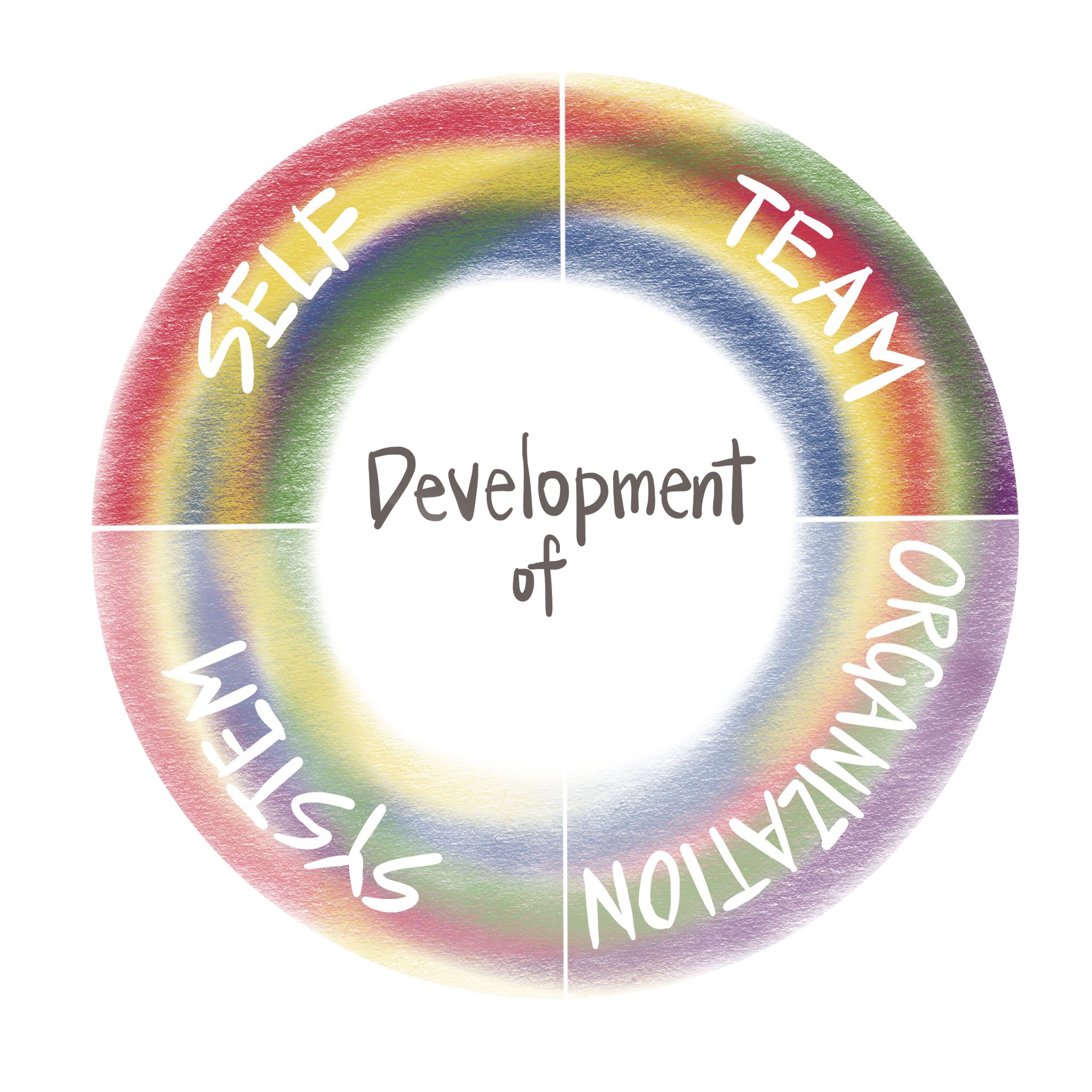
Creating the Conditions for Shared Leadership

Core Challenge: How do we create the conditions so everyone on our team can actively lead change?
Leading systems change is different from leading traditional change efforts. In standard approaches, top leaders generally create a plan and direct staff members in executing it. In systems change, leaders play an enabling rather than a supervising role. They create the conditions for others—especially those on the frontlines of a problem situation—to collectively learn how to make progress on it.
Even though many organizations today are flatter and less hierarchical than in the past, they often fall short of supporting people from all roles to assume shared responsibility for leading change. But without the full engagement and contribution of all stakeholders, systems change initiatives are bound to fail. They won’t draw on the full range of knowledge from throughout the system, and they won’t have the necessary buy-in from those embroiled in the situation to gain traction on it.
To enable true shared leadership, two main cultural shifts must happen:
- Positional leaders must be willing to step back and support others in assuming more prominent roles and in working collaboratively.
- People must feel valued and safe in taking risks.
Once team members begin to see themselves as leaders, a shared sense of purpose, vision, and mission can quickly bring the team together around an inspiring challenge. In his article, “A Shared Purpose Drives Collaboration,” Vineet Nayar, business author and former CEO of a technology company, explains a leader’s role in this process:
What is the longing—the deeply felt longing—that will drive this team even if it does not already have all the tools to achieve it? What will wake up the members of the team every day and make them want to go where they are dreaming of going? When you, as a leader, can articulate that longing and inculcate purpose, you will be well on your way to fostering collaboration among the people in your organization.
When you support your team in establishing a clear sense of direction and understanding how their collaborative efforts can benefit something larger than any one individual, you help them tap into that longing in pursuit of important shared goals.
Engine of Success
Shared leadership relies heavily on high-quality relationships among team members. At the core of these relationships is open and honest communication. When people can authentically and respectfully express their views—and in turn be truly heard by their colleagues—mutual trust grows, along with the possibility for more effective action.
Daniel H. Kim, consultant and founding publisher of The Systems Thinker newsletter, describes this dynamic as “The Reinforcing Engine of Success.” According to Kim, “As the quality of relationships rises, the quality of thinking improves, leading to an increase in the quality of actions and results. Achieving high-quality results has a positive effect on the quality of relationships, creating a reinforcing engine of success.”
But unless you invest time and effort in nurturing these kinds of high-quality relationships, the virtuous cycle can easily become a vicious one. Poor-quality relationships lead to more limited thinking, less thoughtful actions, and disappointing results. In response to poor results, relationships among team members deteriorate even further.
Most of us have witnessed or been part of this negative dynamic at one time or another. Fortunately, by creating the conditions for shared leadership to thrive, you position your team to benefit from the upside of the Engine of Success.
Three sets of capabilities
In this module, explore how to lead yourself and others to:
To make real traction on the issues you and your team care about, you first need to improve the quality of the “relational space” you create together, that is, the shared norms, values, and practices for how you interact. As a leader, together with members of your team, you can learn how to:
- Understand how your beliefs may limit what you see and hear
- Set aside the assumptions you carry into conversations
- Participate in deep, shared reflection to hear different perspectives and grasp others’ experiences of reality
Learn More
People feel safe to try new things in settings where colleagues substitute blame with curiosity and seek win-win solutions to conflict. And when you introduce and support experimentation before investing a lot of money and time in new initiatives, you lower the stakes—and increase the opportunities for learning. When teams experiment and iterate together, they not only produce better outcomes; they also build their skills for collaborating and ultimately for advancing systems change.
Learn More
In The Fifth Discipline Fieldbook, the authors describe purpose as “what the organization is here to do” and vision as “an image of our desired future.” Together, these factors serve to inspire and motivate people—we connect to what we care about. They also orient teams toward creating the future rather than reacting to the present and past. And the process of working together to draft and redraft a shared purpose and vision helps build the very skills needed to make progress on complex adaptive challenges.
Learn More
Videos

Additional Resources
- Energy Futures Lab
- “High-Performing Teams Need Psychological Safety. Here’s How to Create It,” by Laura Delizonna, HBR digital article, August 24, 2017
- What Google Learned from Its Quest to Build the Perfect Team,” by Charles Duhigg, Illustrations by James Graham, The New York Times, February 25, 2016
- Conversational Leadership: Thinking Together for a Change
- Slowing Down: 6 Strategies for Deep Listening
-
“It's not what the vision is, it's what the vision does.”
- Robert Fritz
-
“People don't resist change. They resist being changed.”
- Peter M. Senge
-
“Coming together is a beginning; keeping together is progress; working together is success.”
- Henry Ford
-
“The real voyage of discovery consists not in seeing new landscapes but in having new eyes.”
- Marcel Proust
-
“Create the future rather than predict it.”
- Peter Block
-
“We do know that no one gets wise enough to really understand the heart of another, though it is the task of our life to try.”
- Louise Erdrich
-
“I along cannot change the world, but I can cast a stone across the waters to create many ripples.”
- Mother Teresa
-
“No snowflake in an avalanche ever feels responsible.”
- Stanisław Jerzy Lec